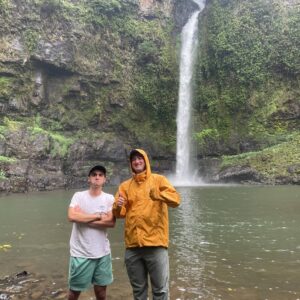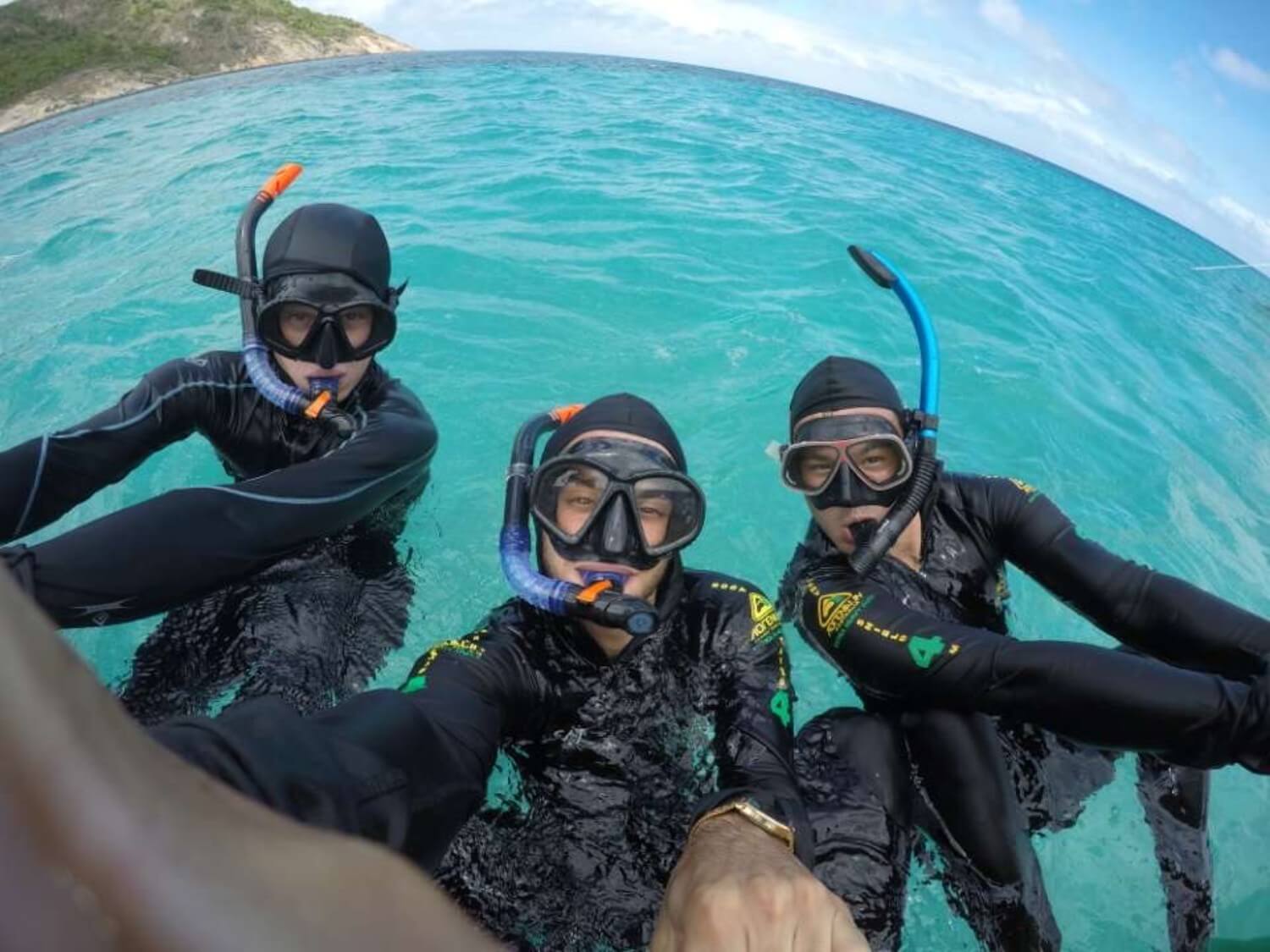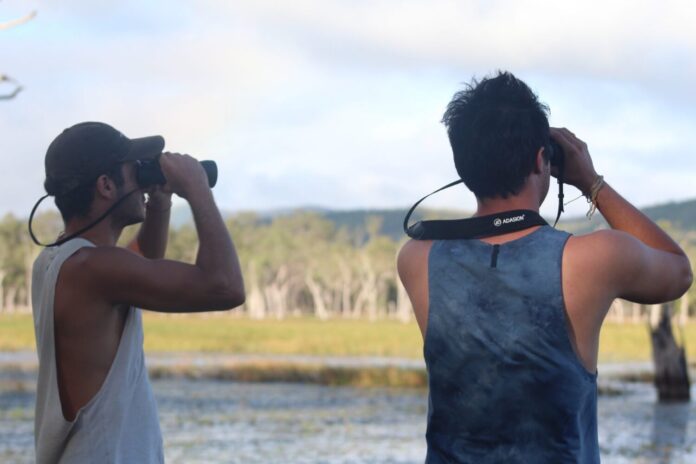While Occidental students soak up the Los Angeles sun, Ian Becker (junior) and Adriano Cantelmi (junior) have been hiking through Australian rainforests in search of the ancient musky rat-kangaroo. According to Becker, tracking the musky rat-kangaroo, a small kangaroo that remains similar to its ancestors 20 million years ago, is one of the major projects the two have worked on along with Colin Green, a junior at Middlebury College.
Becker, Cantelmi and Green been conducting research in many areas of Australia, they said, including Crater Lakes National Park and the area near Cairns. They conduct their own research daily, including planning and executing data collection.
Becker said the musky rat-kangaroo is endemic to the wet tropics and is an extremely ancient species. The group set up trail cameras and counted sightings around Lake Eacham and Lake Barrine in the Crater Lakes National Park, and recorded 24 sightings over six transects in the couple of days, Becker said.
“One of those areas was a reforestation area and there’s a ton of really big cyclones that came through Australia very recently, so there’s a lot of these areas in the rainforest especially that are still recovering,” Becker said. “So being able to survey an animal like the musky rat kangaroo does provide a lot of extra information on not just the animal, but the health of the ecosystem as a whole.”

The group said the low frequency of musky rat-kangaroo sightings presented a challenge. Becker said that when no musky rat-kangaroos were present, they looked at details of the ecosystem such as fruit on the forest floor to try and get as sense of what the population must look like.
“It’s definitely taught me a lot about this field and working in research and how you don’t always have to like your answers, but even the absence of the musky rat kangaroos had a lot of value,” Green said.
Once the curriculum of the program is completed, students are able to choose between an internship and an independent research project abroad. Becker said he is planning to conduct research at a university in Brisbane on urban noise and bird eggs. Cantelmi said he was also looking forward to his independent study project later in the semester, which he said relates to his coursework studying marine biology at Occidental.
“I’m lucky enough to have an advisor who is a late stage PhD student doing research on habitat degradation in the coral reefs and the Great Barrier Reef,” Cantelmi said. “That’s something that I want to do in the future, conducting research, so that gives me exposure and involvement and connection as well.”
Cantelmi said he chose a program in Australia because it was one of the best places to study marine biology. The group is currently on Lizard Island, on the northern part of the Great Barrier Reef, and is in the process of collecting data for a field project on the reef, according to Becker.

Julie Jimenez Santos, the associate director of the Occidental International Programs Office (IPO), worked directly with Becker and Cantelmi during advising for their trip.
“They are taking a methodology class, which helps and couples with the research they’re going to be doing. But along the way, in the program, they’re being exposed to all these different things related to the course theme or topic,” Santos said. “And the students are kind of getting fired up about different areas that they’re interested in.”
Santos said that Becker and Cantelmi are the first Occidental students to return to Australia since the pandemic-induced border closures. The program is a part of the School for International Training (SIT), one of many partners of the IPO.
Robin Craggs, the executive director at the IPO said she has seen great development in the study abroad program at Occidental College and hopes to see engagement return as the world emerges from the pandemic.
There are typically fewer study abroad opportunities for STEM majors than humanities majors, Craggs said, making projects like Becker and Cantelmi’s more rare in study abroad.
“STEM students are underrepresented,” Craggs said. “We try to work really hard to get STEM students abroad, but they tend to go on summer research programs instead of full semesters.”
Craggs said increasing accessibility of semesters abroad, especially to underrepresented groups, has been a central goal of the IPO since she started working in the department in 1994. The diversity of study abroad students is now closer to that of the student body, Craggs said.
According to Craggs and Santos, the first step for Occidental students to take in their journey abroad is to attend an information session to discuss the different kinds of programs, core and major or minor requirements, research opportunities and internships.
Becker said the group has worked with several advisors throughout their trip, including their main academic advisor and a specialist in birds and rainforest ecology, and is currently working with a marine biologist. Becker said he is excited to work with more researchers as he moves into his independent study project.
Cantelmi said he hopes to return to Australia after this experience — either for further study, or for his career — and that connections in the field, as well as experience conducting field research and with the ecosystems, have been an extremely important element of his study abroad.
“Who gets to spend 10 days consecutively in a rainforest in Australia?” Cantelmi said. “That was quite an amazing experience.”
Contact Mollie Barnes at @mbarnes@oxy.edu.
![]()































